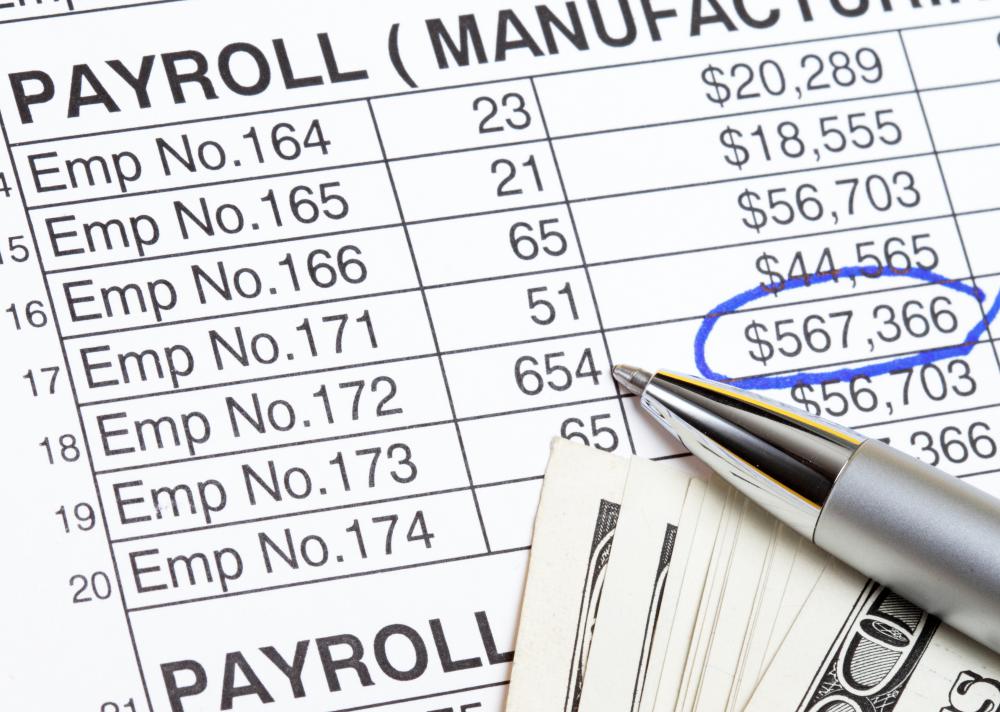At PracticalAdultInsights, we're committed to delivering accurate, trustworthy information. Our expert-authored content is rigorously fact-checked and sourced from credible authorities. Discover how we uphold the highest standards in providing you with reliable knowledge.
What Does a Payroll Trainee Do?
Payroll trainees are entry-level employees who receive on-the-job training before transitioning into permanent payroll clerk positions. Like an established clerk, a payroll trainee processes employee wage payments and makes any necessary deductions to cover taxes and other costs. Trainees normally work under the direct supervision of experienced clerks or departmental managers.
Typically, a payroll trainee must have graduated from high school but most firms do not expect trainees to have college degrees since clerk jobs are normally entry-level positions. Trainees are shown how to read employee time cards that include information such as the hours the employee worked. Labor laws in some countries require employers to pay extra money or over-time to employees whose weekly working hours exceed certain maximums. Firms use payroll codes to distinguish regular working hours from over-time, vacation and sick time. During the initial orientation period, trainees are taught about the different payroll codes and how to input information into payroll systems and software.

In many countries, employers are required to withhold taxes from employee's wages and payroll clerks and trainees are responsible for calculating these mandatory withholding. Clerks calculate the annual wages of employees and use a tax rate matrix to determine the amount of tax that each employee must pay. Therefore, a payroll trainee must have good mathematics skills and an eye for detail. Additionally, workers in some nations are able to make pre-tax contributions to retirement and healthcare accounts in which case clerks and trainees must deduct money from paychecks and make arrangements to have the money deposited into the appropriate accounts.
Occasionally, departmental managers and employees make errors when inputting payroll information and a payroll trainee must check time cards for accuracy before processing any payments. Trainees often have to contact employees to resolve issues related to such errors which means that trainees must have good administrative and inter-personal skills. Laws in many nations require employers to keep payroll information on file for several years and trainees are often tasked with filing payroll documents.
On a day-to-day basis, a payroll trainee is responsible for the same kind of tasks and responsibilities as a permanent payroll department employee. While payroll clerks are usually responsible for their own work, the work of a payroll trainee is normally inspected by a supervisor before any wage payments are processed. Furthermore, trainees often have to complete tests on various aspects of their work before they can begin to handle more complex tasks. Trainees who make minimal errors are eventually able to work without direct supervision. When this occurs, the training process typically ends and the trainees become fully fledged payroll clerks.
AS FEATURED ON:
AS FEATURED ON:











Discuss this Article
Post your comments